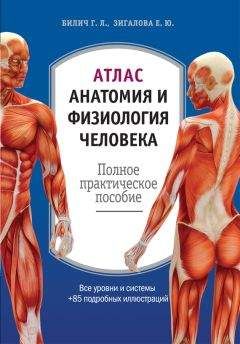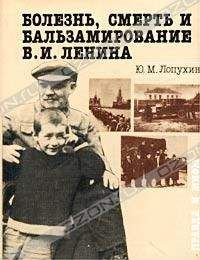Милтон Селигман - Обычные семьи, особые дети
Lynch, E. W., & Hanson, M. J. (1992). Developing cross-cultural competence: A guide for working with young children and their families. Baltimore: Brookes.
Lyon, S., & Lyon, G. (1991). Collaboration with families of persons with severe disabilities. In M. Seligman (Ed.), The family with a handicapped child (2nd ed., pp. 237-264). Boston: Allyn & Bacon.
Lyon, S., & Preis, A. (1983). Working with families of severely handicapped persons. In M. Seligman, (Ed.) The family with a handicapped child: Under standing and treatment (pp. 203-232). Orlando, FL: Grune & Stratton.
MacGregor, P. (1994). Grief: The unrecognized parental response to mental illness in a child. Social Work, 39, 160-166.
MacKeidi, R. (1973). The feelings and behavior of parents of handicapped children. Developmental Medicine and Child Neurology, 15, 524-527.
Manns, W. (1981). Support systems of significant others in black families. In H. R McAdoo (Ed.), Black families (pp. 238-251). Beverly Hills: Sage.
Marcos, L. R. (1979). Effects of interpreters on the evaluation of psychopathology in non-English-speaking patients. American Journal of Psychiatry, 136(2), 171-174.
Marion, R. L. (1980). Communicating with parents of culturally diverse exceptional children. Exceptional Children, 46, 616-623.
Marion, R. L. (1981). Educators, parents, and exceptional children. Rockville, MD: Aspen.
Marsh, D. T. (1992). Families and mental retardation. New York: Praeger.
Marshak, L. (1982). Group therapy with adolescents. In M. Seligman (Ed.), Group psychotherapy and counseling with special populations (pp. 185-213). Baltimore: University Park Press.
Marshak, L. E., & Seligman, M. (1993). Counseling persons with disabilities: Theoretical and clinical perspectives. Austin, TX: Pro-Ed.
Martin, R (1975). Marital breakdown in families of patients with spina bifida cystica. Developmental Medicine and Child Neurology, 17, 757-764.
Martinez, C, & Martin, H. W. (1966). Folk diseases among urban Mexican-Americans: Etiology, symptoms, and treatment. Journal of the American Medical Association, 196, 161-164.
Mary, N. L. (1990). Reactions of black, Hispanic, and white mothers to having a child with handicaps. Mental Retardation, 28, 1-5.
Matheny К. В., Aycock, D. W., Pugh, J. L., Curlette, W. L., & Canella, K. S. (1986). Stress coping: A qualitative and quantitative synthesis with implications for treatment. Counseling Psychologist, 14, 499-549.
Max, L. (1985). Parents' views of provisions, services, and research. In N. N. Singh & К. M. Wilton (Eds.), Mental retardation in New Zealand (pp. 250-262). Christchurch, New Zealand: Whitcoulls.
May, J. (1991). Fathers of children with special needs: New horizons. Bethesda, MD: ACCH.
McAdoo, J. L. (1981). Involvement of fathers in the socialization of black children. In H. P. McAdoo (Ed.), Black families. Beverly Hills: Sage.
McAnaney, K. (1990, July/August). How did I get this tough? Fighting for your child's rights. Exceptional Parent, pp. 20-22.
McCracken, M. J. (1984). Cystic fibrosis in adolescence. In R. W. Blum (Ed.), Chronic illness and disabilities in childhood and adolescence (pp. 397-411). Orlando, FL: Grune & Stratton.
McCubbin, H. I., & Patterson, J. M. (1981). Systematic assessment of family stress, resources, and coping: Tools for research, education and clinical intervention. St. Paul: University of Minnesota, Department of Family Social Science, Family Stress and Coping Project.
McCubbin, H. I., & Patterson, J. M. (1983). The family stress process: The double ABCX model of adjustment and adaptation. Marriage and Family Review, 6, 7-37.
McDaniel, S. H., Hepworth, J., & Doherty W. J. (1992). Medical family therapy. New York: Basic Books.
McDonald, А. С, Carson, К. L., Palmer, D. J., & Slay, Т. (1982). Physicians' diagnostic information to parents of handicapped neonates. Mental Retardation, 20, 12-14.
McGoldrick, M. (1982). Ethnicity and family therapy: An overview. In M. McGoldrick, J. K. Pearce, &J. Giordano (Eds.), Ethnicity and family therapy (pp. 3-30). New York: Guilford Press.
McGoldrick, M., & Gerson, R. (1985). Genograms in family assessment. New York: Norton.
McGoldrick, M., Pearce, J. K., & Giordano, J. (1982). Ethnicity and family therapy. New York: Guilford Press.
McHale, S. M., & Gamble, W. G. (1987). Sibling relationships and adjustment of children with disabled brothers and sisters. Journal of Children in Contemporary Society, 19, 131-158.
McHale, S. M., Sloan, J., & Simeonsson, R. J. (1986). Sibling relationships with autistic, mentally retarded, and non-handicapped brothers and sisters. Journal of Autism and Developmental Disorders, 16, 399-414.
McHugh, R (1968). Defining the situation. Indianapolis: Bobbs-Merrill.
McMichael, J. K. (1971). Handicap: A study of physically handicapped children and their families. Pittsburgh: University of Pittsburgh Press.
McPhee, N. (1982, June). A very special magic: A grandparent's delight. Exceptional Parent, pp. 13-16.
Mercer, J. R. (1965). Social system perspective and clinical perspective: Frames of reference for understanding career patterns of persons labeled as mentally retarded. Social Problems, 13, 18-34.
Meyer, D., Vadasy, P., & Fewell, R. R. (1985). Living with a brother or sister with special needs: A book for sibs. Seattle, WA: University of Washington Press.
Meyer, D.J. (1995). Uncommon fathers: Reflections on raising a child with a disability. Bethesda, MD: Woodbine.
Meyer, D. J., & Vadasy, P. E (1986). Grandparent workshops: How to organize workshops for grandparents of children with handicaps. Seattle: University of Washington Press.
Meyer, D. J., & Vadasy, P. E (1994). Sibshops: Workshops for siblings of children with special needs. Baltimore: Brookes.
Meyer, D. J., Vadasy, R E, Fewell, R. R., & Schell, G. (1985). A handbook for the fathers program. Seattle: University of Washington Press.
Meyer, E. G, & Bailey, D. B. (1993). Family-centered care in early intervention: Community and hospital settings. In J. L. Paul & R. J. Simeonsson (Eds.), Children with special needs: Family, culture, and society (pp. 181-209). New York: Harcourt, Brace, Jovanovich.
Meyer, J. Y (1978). One of the family. In S. L. Brown &M. S. Moersch (Eds.), Parents on the team (pp. 103-111). Ann Arbor: University of Michigan Press.
Meyerson, R. G. (1983). Family and parent group therapy. In M. Seligman (Ed.), The family with a handicapped child: Understanding and treatment (pp. 285-305). Orlando, FL: Grune & Stratton.
Michaelis, G. T. (1980). Home and school partnerships in exceptional children. Rockville, MD: Aspen.
Miller, S. (1974). An exploratory study of sibling relationships in families with retarded children. Unpublished doctoral dissertation, Columbia University, New York.
Milman, D. H. (1952). Group therapy with parents: An approach to the rehabilitation of physically disabled children. Journal of Pediatrics, 41, 113-116.
Minkler, M., & Roe, К. M. (1993). Grandmothers as caregivers: Raising the children of the crack cocaine epidemic. Thousand Oaks, CA: Sage.
Minuchin, S. (1974). Families and family therapy. Cambridge, MA: Harvard University Press.
Minuchin, S. (1978). Psychosomatic families. Cambridge, MA: Harvard University Press.
Mitchell, D. (1983). Guidance needs and counseling of parents of mentally retarded persons. In N. N. Singh & К. M. Wilton (Eds.), Mental retardation: Research and services in New Zealand (pp. 136-156). Christchurch, New Zealand: Whitcoulls.
Mitchell, D. (1985). Guidance needs and counselling of parents of persons with intellectual handicaps. In N.N. Singh & К. M. Wilton (Eds.), Mental retardation in New Zealand (pp. 136-156). Christchurch, New Zealand: Whitcoulls.
Mizio, E. (1974). Impact of external systems on the Puerto Rican family. Social Casework, 55, 76-83.
Moeller, C. J. (1986). The effect of professionals on the family of a handicapped child. In R. R. Fewell & P. F Vadasy (Eds.), Families of handicapped children (pp. 149-166). Austin, TX: Pro-Ed.
Montalvo, B. (1974). Home-school conflict and the Puerto Rican child. Social Casework, 55, 76-83.
Moore, E. K. (1981). Policies affecting the status of black children and families. In H. R McAdoo (Ed.), Black families (pp. 278-290). Beverly Hills: Sage.
Moorman, M. (1992, January/February). My sister's keeper. Family Therapy Networker, 41-47.
Morgan, S. (1987). Abuse and neglect of handicapped children. Boston: College-Hill.
Mori, А. А. (1983). Families of children with special needs: Early intervention. Rockville, MD: Aspen.
Morris, M. M. (1987, July). Health care: Who pays the bills? Exceptional Parent, pp. 38-42.
Mott, D. W., Jenkins, V L., Justice, E. E, & Moon, R. M. (n.d.) Project Hope. Family, Infant and Preschool Program, Western Carolina Center, Morganton, NC.
Mullins, J. (1979). A teacher's guide to management of physically handicapped students. Springfield, IL: Thomas.
Murphy, A, Paeschel, S., Duffy, Т., & Brady, E. (1976). Meeting with brothers and sisters of Down's syndrome children. Children Today, 5, 20-23.
Myers, R. (1978). Like normal people. New York: McGraw-Hill.
NCHS studies health insurance and chronically ill children. (1992, October). Nation's Health, p. 13.
Neugarten, B. L. (1976). Adaptation and the life cycle. Counseling Psychologist, 6, 16-20.
Newman, J. (1983). Handicapped persons and their families: Philosophical, historical, and legislative perspectives. In M. Seligman (Ed.), The family with a handicapped child (pp. 3-25). Orlando, FL: Grune & Stratton.
Newman, J. (1991). Handicapped persons and their families: Philosophical, historical, and legislative perspectives. In M. Seligman (Ed.), The family with a handicapped child (2nd ed., pp. 1-26). Boston: Allyn & Bacon.
Newman, M. A. (1983). A continuing evolution: A history of nursing science. In N. L. Chaska (Ed.), Time to speak (pp. 385-393). New York: McGraw-Hill.
Norr, K. L., Block, С R., Charles, A., Meyering, S., & Meyers, E. (1977). Explaining pain and enjoyment in childbirth. Journal of Health and Social Behavior, 18, 260-275.
Offer, D., Ostrov, E., & Howard, K. I. (1984). Body image, self-perception, and chronic illness in adolescence. In R. W. Blum (Ed.), Chronic illness and disabilities in childhood and adolescence (pp. 59-73). Orlando, FL: Grime & Stratton.
Olshansky S. (1962). Chronic sorrow: A response to having a mentally defective child. Social Casework, 43, 190-193.
Olson, D. H., McCubbin, H. I., Barnes, H., Larsen, A, Muxen, M., & Wilson, M. (1984). One thousand families: A national survey. Beverly Hills: Sage.
Olson, D. H., Russell, С S., & Sprenkle, D. H. (1980). Circumplex model of marital and family systems II: Empirical studies and clinical intervention. In J. P.Vincent (Ed.), Advances in family intervention assessment and theory (Vol. 1, pp. 129-179). Greenwich, CT: JAI Press.
Opirhory, G., & Peters, G. A. (1982). Counseling intervention strategies for families with the less than perfect newborn. Personnel and Guidance Journal, 60, 451-455.
Orenstein, A. (1979). Organizational issues in implementing special educational legislation. Paper presented at the annual meeting of the Society for the Study of Social Problems, Boston, MA.
Parke, R. D. (1981). Fathers. Cambridge, MA: Harvard University Press.
Parsons, T. (1951). The social system. NY: Free Press.
Patterson, J. M. (1985). Critical factors affecting family compliance with home treatment for children with cystic fibrosis. Family Relations, 34, 79-89.
Patterson, J. M. (1988). Chronic illness in children and the impact on families. In C. Chilman, E. Nunnally, & E. Cox (Eds.), Chronic illness and disability (pp. 69-107). Beverly Hills: Sage.
Patterson, J. M. (1991). A family systems perspective for working with youth with disability. Pediatrician, 18, 129-141.
Pearlman, L., & Scott, K. A. (1981). Raising the handicapped child. Englewood Cliffs, NJ: Prentice-Hall.
Peck, J. R., & Stephens, W. B. (1960). A study of the relationship between the attitudes and behavior of parents and that of their mentally defective child. American Journal of Mental Deficiency, 64, 839-844.
Pepper, E C. (1976). Teaching the American Indian child in mainstream settings. In R. L.Jones (Ed.), Mainstreaming and the minority child (pp. 108 – 122). Reston, VA: Council for Exceptional Children.
Pieper, E. (1976, April). Grandparents can help. Exceptional Parent, pp. 7-9.
Pinderhughes, E. (1982). Afro-American families and the victim system. In M. McGoldrick, J. K. Pearce, & J. Giordano (Eds.), Ethnicity and family therapy (pp. 133-158). New York: Guilford Press.
Pines, M. (1982). Infant-stim: It's changing the lives of handicapped kids. Psychology Today, 16, 48-53.
Pizzo, P. (1983). Parent to parent: Working together for ourselves and our children. Boston: Beacon.
Powell, J. D. (1975). Theory of coping systems: Changes in supportive health organizations. Cambridge, MA: Schenkman.
Powell, T. H., & Gallagher, P. E. (1993). Brothers and sisters: A special part of exceptional families (2nd ed.). Baltimore: Brookes.
Poznanski, E. (1969). Psychiatric difficulties in siblings of handicapped children. Pediatrics, 8, 232-234.
Prattes, 0. (1973). Section A: Beliefs of the Mexican-American family. In D. Hymovich & M. Barnard (Eds.), Family health care (pp. 128-137). New York: McGraw-Hill.




